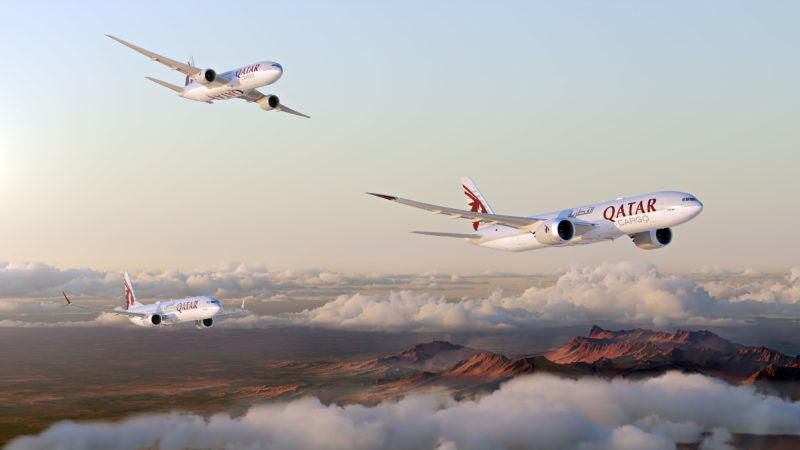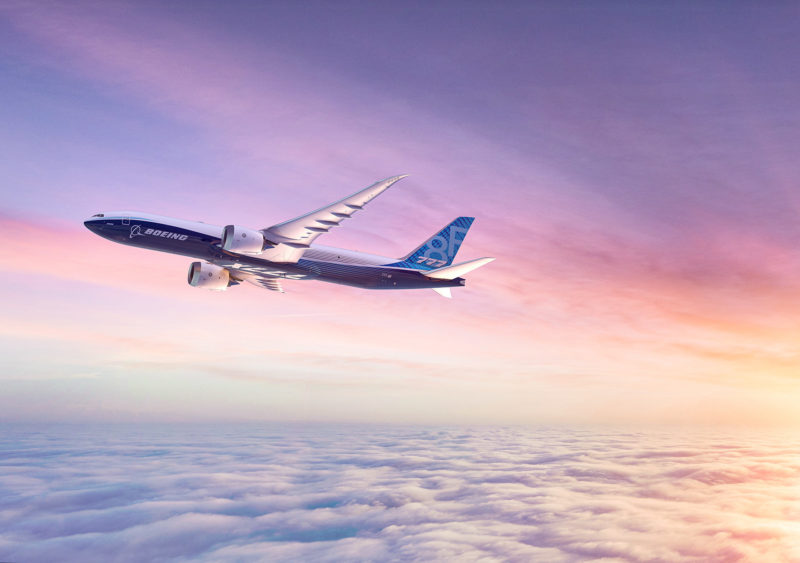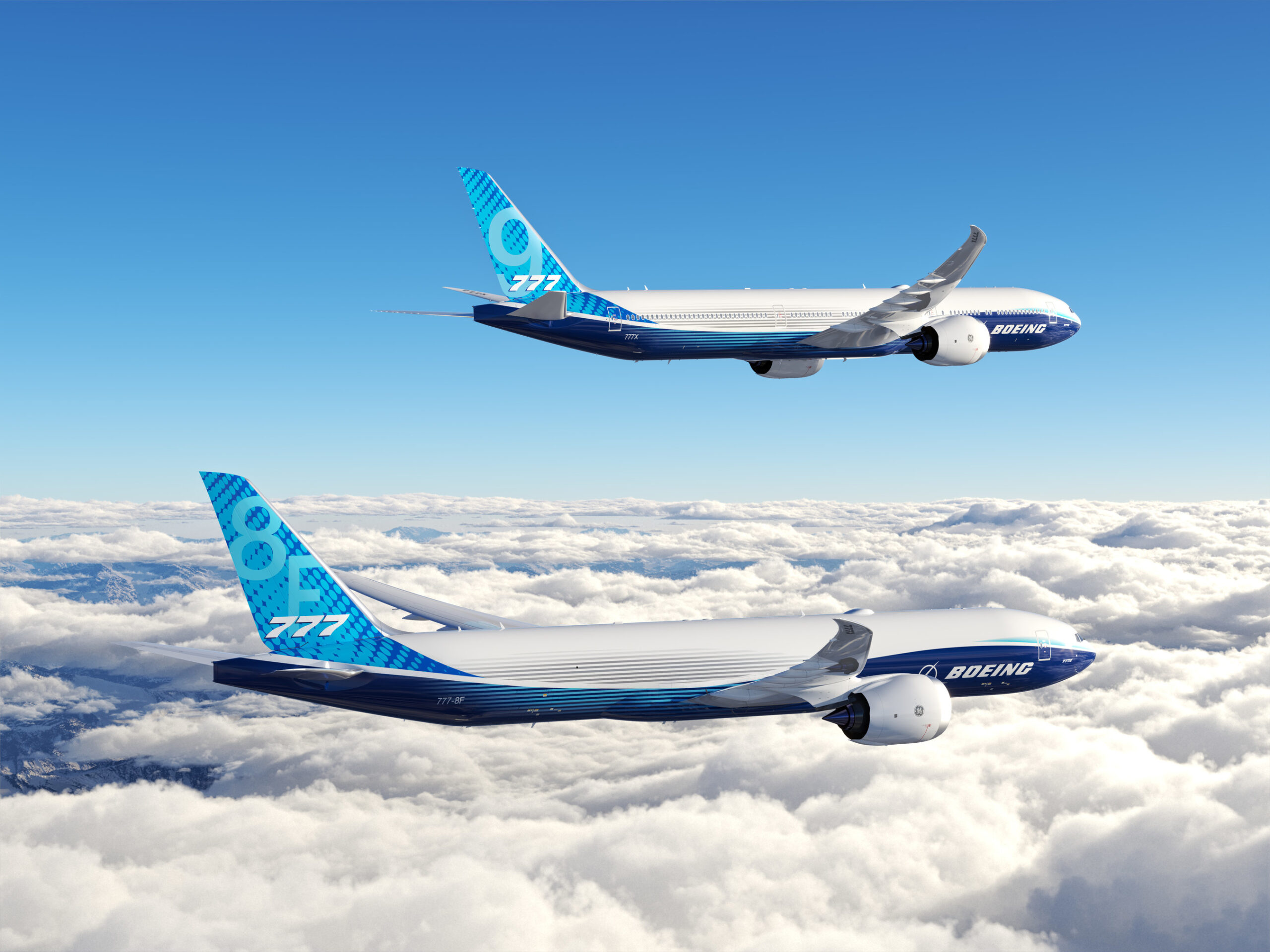Boeing today launched the new 777-8 Freighter with an order for up to 50 aircraft from Qatar Airways.
Qatar Airways will be the 777-8 Freighter launch customer with a firm order for 34 jets and options for 16 more, a total purchase that would be worth more than $20 billion at current list prices and the largest freighter commitment in Boeing history by value.
The 777-8 Freighter will be the largest, longest-range twin-engine freighter in the industry. With payload capacity nearly identical to the 747-400 Freighter and a 25% improvement in fuel efficiency, emissions and operating costs, the 777-8 Freighter will enable a more sustainable and profitable business for operators.
The first delivery of the new freighter is anticipated in 2027.
“Today marks a great day in the ever-building and strong relationship between Qatar Airways and Boeing. We certainly push Boeing hard to deliver upon our expectations, and the team at Boeing consistently strives to meet and exceed our expectations, giving the opportunity for us to be here today to launch the most significant new freighter aircraft for a generation.”
Akbar Al Bakar, Qatar Airways GCEO
“We are delighted to launch Boeing’s next great cargo airplane – the 777-8 Freighter – with Qatar Airways, one of the world’s largest cargo carriers and our partner since the airline began operations 25 years ago,” said Boeing Commercial Aircraft CEO Stan Deal.

About the 777-8 Freighter
Boeing is designing the 777-8 Freighter, the newest member of the 777X family, to maximize efficiency and environmental performance. The widebody family features engineering design improvements and innovative technologies, including a new carbon-fiber composite wing and new fuel-efficient engines.
With a range of 4,410 nautical miles (8,167 km), the 777-8 Freighter has a maximum structural payload of 118 tonnes.
Boeing will build the 777-8 Freighter in its Everett, Wash., factory. The company has invested more than $1 billion into the Everett site to support 777X production and sustain thousands of local jobs for decades to come.
As part of today’s agreement, Qatar Airways will convert 20 of its 60 777X family orders to the 777-8 Freighter. Qatar Airways is also ordering two current 777 Freighters to capitalize on the buoyant air cargo market.

GE9X Engine to Power the B777-8 Freighters
Qatar Airways has also selected GE9X engines as part of its global launch order of up to 50 Boeing 777-8 Freighters. The commitment includes 30 GE9X engines and four GE90-115B engines for the 2 B777F.
The total value of the order with GE is more than U.S.$6.8 billion list price, including spare engines and a TrueChoice services agreement to cover the maintenance, repair and overhaul (MRO) of the engines.
About B777X Program
Boeing currently has 351 777X orders and commitments from eight airlines — All Nippon Airways, British Airways, Cathay Pacific, Emirates, Etihad, Lufthansa, Qatar Airways and Singapore Airlines. The aircraft took its first trip outside of the U.S., appearing at the Dubai Airshow in November 2021.
Four prototypes of the 777X have accumulated more than 1,700 of flight testing hours, a little less than half of the approximately 3,500 flight hours the original 777 and the 787 Dreamliner underwent before receiving FAA certification.
Strong Cargo Market
This new order shows that the freighter market remains strong even as Boeing and Airbus continue to struggle to make large jet sales in the passenger side of the market.
Airbus unveiled the A350F, a freighter version of the A350-1000 during Dubai Airshow 2021 to challenge Boeing in the growing freighter segment of the market. Singapore Airlines signed a letter of intent for seven A350F freighters as the launch customer.
Airbus states that the A350F is capable of meeting the latest ICAO CO2 requirements, which require production aircraft from 2028 to fall under the new CO2 limits.




